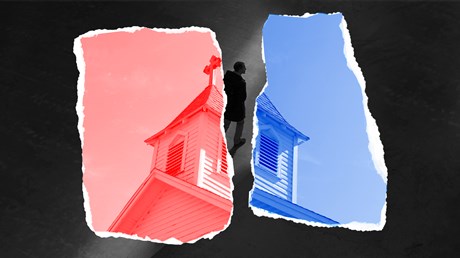A Nonconservative’s Plea to Those Leaving Conservative Churches
Roger Olson sympathizes with liberal leavers, but he draws the line at liberal theology.

In the preface of Roger Olson’s new book, Against Liberal Theology, we meet a particular type of exvangelical all too familiar in this age of disillusionment and deconstruction. As Olson describes this tribe, “They grew up in fundamentalist churches, found them stifling, anti-intellectual, legalistic, whatever, and rushed past the middle ground to the opposite end of the Christian spectrum, to liberal Christianity.”
These people haunt him. Olson fully sympathizes with their desire to escape the militant dogmatism of churches on the far-right fringe. But he is baffled by the flying leap they have taken from one extreme position to its opposite. It is a leap that carries them over the broad fields of Christianity itself, skimming lightly past every actual position of any churches along the entire scale of theological possibilities.
Why not touch down somewhere before the antipode? Olson is vexed by this quantum leap. But he is more vexed by the actual landing point: the position known as liberal theology, against which he has written this short book.
Cutting the cord
The book’s title is admirably clear about its main goal. Olson’s thesis is “that liberal Christianity has cut the cord of continuity with the Christian past, orthodoxy, so thoroughly that it ought to be considered a different religion.” But the book also has a secondary goal, indicated in the subtitle: “Putting the Brakes on Progressive Christianity.”
About this thing called progressive Christianity—“whatever that means, exactly,” as Olson mutters in one aside—the book has very little to say. He is not sure that the phrase has any specific meaning, and he suggests that it is “simply …
